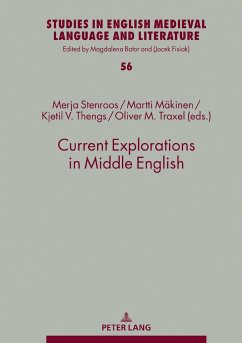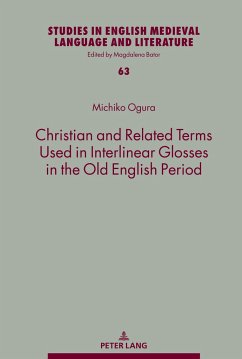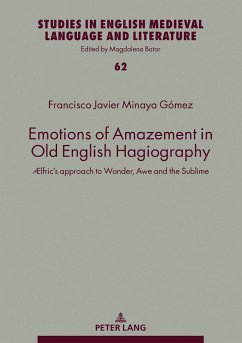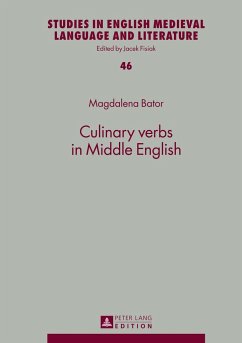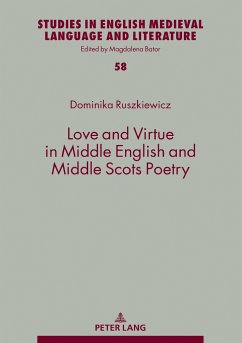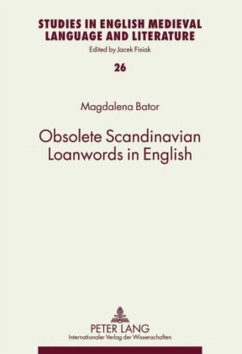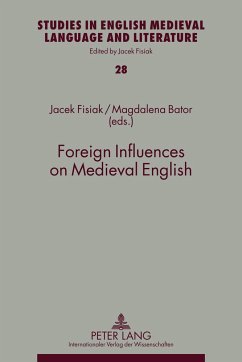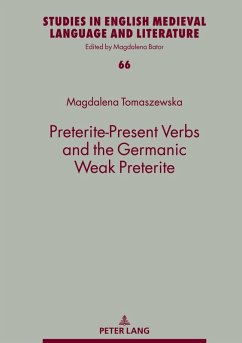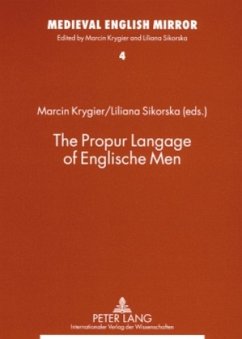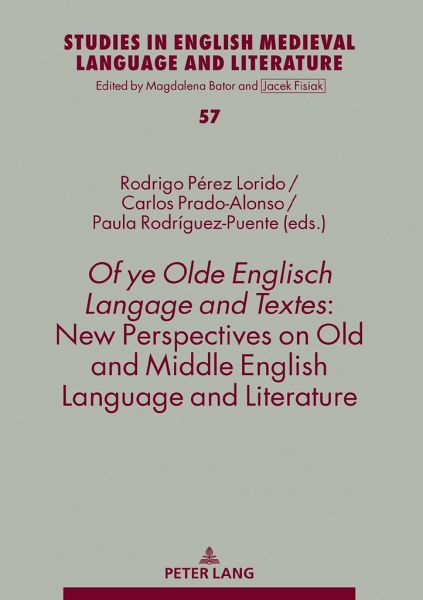
Of ye Olde Englisch Langage and Textes: New Perspectives on Old and Middle English Language and Literature
Versandkostenfrei!
Versandfertig in 6-10 Tagen
76,30 €
inkl. MwSt.

PAYBACK Punkte
0 °P sammeln!
This book provides new insights on different aspects of Old and Middle Eng-lish language and literature, presenting state-of-the-art analyses of linguistic phenomena and literary developments in those periods and opening up new directions for future work in the field. The volume tackles aspects of English diachronic linguistics such as the development of binominals and collective nouns in Old and Middle English, the early history of the intensifiers 'deadly' and 'mortally', the articulatory-acoustic characteristics of approximants in English, Old English metrics, some aspects of the methodolog...
This book provides new insights on different aspects of Old and Middle Eng-lish language and literature, presenting state-of-the-art analyses of linguistic phenomena and literary developments in those periods and opening up new directions for future work in the field. The volume tackles aspects of English diachronic linguistics such as the development of binominals and collective nouns in Old and Middle English, the early history of the intensifiers 'deadly' and 'mortally', the articulatory-acoustic characteristics of approximants in English, Old English metrics, some aspects of the methodology of corpus research with paleography in focus, studies of the interplay language-register, and a chapter discussing the periodology of Older Scots. The last section of the book ad-dresses literary and translatorial issues such as the impact of Latin 'quis' on the Middle English interrogative 'who of', the problems that may arise when trans-lating Beowulf into Galician, a reinterpretation of Chaucer's Knight's Tale, and a discussion of the structure of medieval manuscripts containing miscellanea.





